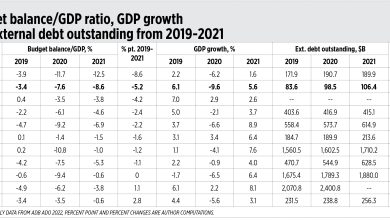Five ideas that will reshape Capitalism’s next century

(Part 1)
THE Harvard Business Review (HBR) is celebrating its 100th birthday with a fat book of its most influential and innovative articles and an electronic fanfare of videos, charts, and online articles.
HBR was founded 14 years after its mothership, the Harvard Business School, to provide the fledgling discipline of business with a bit of academic heft. The new discipline faced a lot of sneering from the Brahmin establishment who ran Harvard in those days for lacking academic rigor as well as social cachet. Wallace Brett Donham, HBS’s dean from 1919 to 1942, hoped that the review would address one of these complaints by pioneering a “theory of business” based on rigorous research and capable of teaching fledgling businessmen sound judgment. Without such a theory, he wrote in the inaugural issue, business would be “unsystematic, haphazard, and for many men a pathetic gamble.”
Donham’s brainchild succeeded beyond anybody’s wildest dreams. HBR articles launched billion-dollar management ideas, such as re-engineering or asset-lite management, that changed entire industries. The few Brahmins who remain in Harvard look out from their little cubby holes at the business school across the river and gnash their teeth with envy. A magazine that was once described by one of its editors as being written by people who can’t write for people who can’t read is now a bible of corporate America.
Which is why the current volume is such a disappointment. The brief introduction makes a few interesting points — notably that the magazine’s focus has shifted from the tangible aspects of management, such as how to allocate financial resources or organize production, to more intangible subjects such as how to get the most out of your workers or enthrall your customers. But it fails to tackle any of the hard questions. Why is a discipline that is supposed to make business less of a haphazard gamble subject to so many fads and indeed frauds? And how does HBR explain its role in promoting ideas such as re-engineering or companies such as Enron? The HBR doesn’t necessarily owe us humility, but it does owe us introspection.
The collection includes some great articles which it’s nice to have in one place (two of my favorites are the articles that bookend the collection, Peter Drucker on managing oneself and Gary Hamel and C.K. Prahalad on strategic intent). But it also contains some inexplicable gaps. How can you produce a collection of the most interesting and innovative articles in the HBR without including Michael Jensen’s “the eclipse of the public corporation,” an intellectual tour de force which defined an era? In general, the collection is ludicrously heavy on current preoccupations (such as authenticity) and light on yesterday’s passions (globalization as well as private equity). The book eschews chronological organization without embracing any thematic alternative that I could work out.
The extras are even more variable in quality. HBR asked some leading thinkers to speculate about what’s next for some big topics. Some of what they had to say was interesting (Ram Charam on the future of organizations); some were merely platitudinous (Marcus Buckingham on what a “good job” would look like). Where the package hit its nadir is about the future of management. HBR asked “a panel of global experts” what management will look like in the next 100 years. The answer that came back from each of the experts was almost identical: Management will become cuddlier and less command-and-control. Sut I Wong of the Norwegian Business School says that management will be all about “empathy.” Frederic Frery of ESCP Business School says that management will/should “forget about the art of war and focus instead on the art of seduction.” Rachel Spivey, the head of Google’s Stay & Thrive team, says that the future will be “all about fostering a direct, transparent and empathetic approach to management.”
What twaddle! I suspect the empathy-first approach that dominates today’s business schools will not survive the next five years intact, let alone the next 50 or 100, or else will simply become so ossified that nobody outside a tiny clique will listen to it. Today’s focus on inclusion and empathy was dictated by the peculiar combination of a prolonged bull market on the one hand and the shock of the societal rifts exploited and widened by the Trump presidency. The focus will shift significantly in the future as recent preoccupations, notably diversity, become bureaucratized, and companies desperately adjust to the fracturing of the global economy, the rise of Asia, and the long-term decline in productivity.
It would be churlish for me to be so brutal about the HBR panel’s predictions without offering some alternative predictions of my own (and with them my head, at least metaphorically, for anybody who wants to chop it off). I think that business life over the coming decades will be dominated by five great trends that will reshape management just as dramatically as did world wars, whether hot or cold, or the invention of the computer.
THE RETURN OF A WARTIME ECONOMY
Vladimir Putin’s invasion of Ukraine has inaugurated a new era in business affairs, not just because it has forced business to respond to Russia’s immediate aggression but also because it has forced it to wake up to China’s geostrategic ambitions. President Xi Jinping will be further emboldened if, as is widely expected, he is effectively made president for life in the National Congress of the Chinese Communist Party. Competition between China and the West for resources, ranging from food, fish, and water to rare earths, will only intensify as the world shifts to battery power and the war in Ukraine continues to threaten grain supplies.
So far most of the great initiatives have come from governments, particularly from the US government. President Joe Biden has passed a CHIPS Act to reduce dependence on Chinese semiconductors. Treasury Secretary Janet Yellen has sung the praises of “friend-shoring.” Businesses are still playing catch-up — belatedly creating new supply chains in India or Vietnam to supplement their existing ones in China for example.
They will surely become more proactive as they adjust to a new world in which military spending is an increasingly powerful driver of the global economy and potential conflict an ever-present danger. A growing number of start-ups will shift their focus from consumer goods to military supplies. High-tech companies will follow the example of Palantir Technologies, Inc. and challenge the power of companies such as Lockheed Martin Corp. and General Dynamics Corp. that were born before the digital age. Indeed, in the longer term a military-digital complex will likely replace the old military-industrial complex. Companies of all description, whether or not they are formally part of the digital-industrial complex, will beef up their political risk departments to pay more attention to military and strategic risks. Frederic Frery mocks the bad old days when “business strategy was often taught by military officers who looked to generals such as Sun Tzu and Carl von Clausewitz for management insights.” In fact, companies will turn to military men and women, schooled in hard realities at West Point and on the front line, for leadership and advice.
(To be continued.)
BLOOMBERG OPINION




